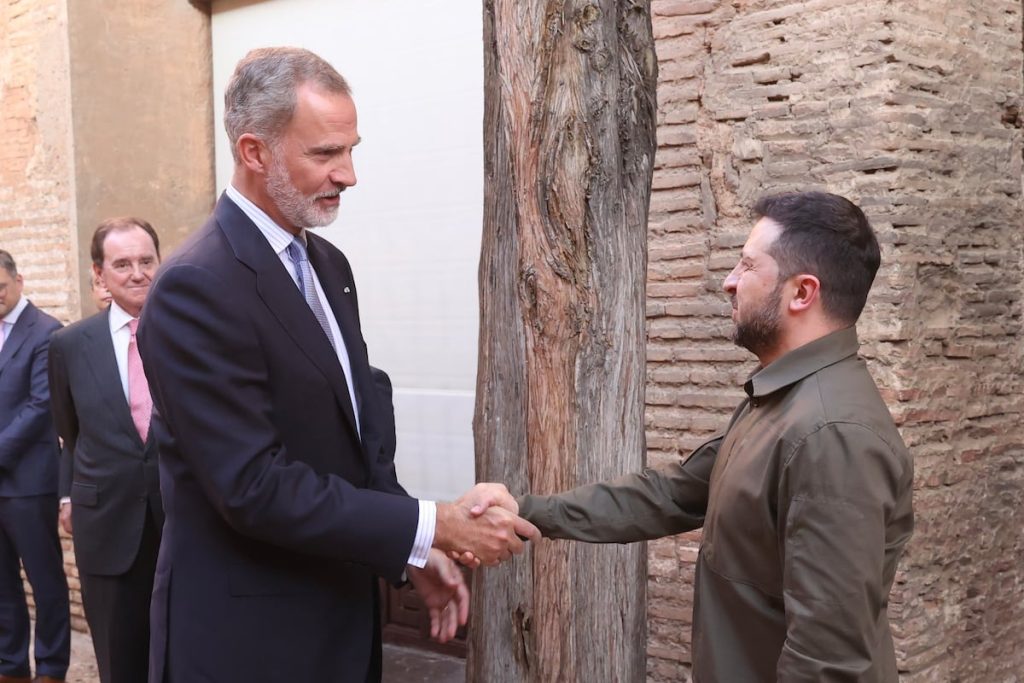King Felipe VI will receive Volodimir Zelenski in an audience at the Royal Palace next Friday, as announced by La Zarzuela, confirming the visit of the President of Ukraine, which was anticipated by EL PAÍS last Monday. Following the audience, the King and Queen will host a lunch for the Ukrainian president at the Royal Palace, marking his first official visit to Spain. Zelenski had previously attended the summit of the Community of European Politics in Granada last October, as part of Spain’s EU presidency.
During his stay in Spain, Zelenski will sign a security agreement with President Pedro Sánchez similar to those Ukraine has already signed with the UK, Germany, France, Italy, Denmark, and Canada. This agreement aims to provide long-term military support and serve as a bridge until Ukraine can become a full member of NATO and the EU. Negotiations for this agreement began in early March and have already concluded. Sánchez and Zelenski last spoke on May 7th, discussing the bilateral security agreement and Sánchez announcing Spain’s support for the peace summit in Switzerland next month.
The bilateral security agreement between Spain and Ukraine will provide stability and predictability to the military support that Spain has been providing to Kiev, including the supply of arms, training of fighters by the Toledo Training Coordination Center, and medical care for wounded soldiers in Zaragoza. While the agreement does not include a security guarantee like Article 5 of the Washington Treaty, it does commit Spain to consult with Ukraine in the event of a potential Russian attack and to maintain economic sanctions against Russia.
Recent agreements between Ukraine and several European countries respond to the G-7’s call last July for support following Ukraine’s stalled NATO membership request. Although Spain is not part of the G-7, it has joined the call and initiated negotiations for an agreement that does not include mutual security guarantees but commits to consultations in the event of a Russian attack and upholding sanctions against Russia. The agreement will likely specify the amount of military aid Spain will provide Ukraine in the coming years.
Opposition party Podemos has accused the government of bypassing parliamentary approval for the military agreement between Zelenski and Sánchez by only seeking approval from the Council of Ministers. Podemos argues that this deprives Congress of the opportunity to debate and decide on a matter of significant importance to Spain. Meanwhile, Spain’s provision of Patriot missiles to Ukraine has been praised for its prompt delivery, reinforcing the country’s defenses against Russian attacks on critical infrastructure, despite being a relatively small quantity compared to other countries’ aid efforts.


